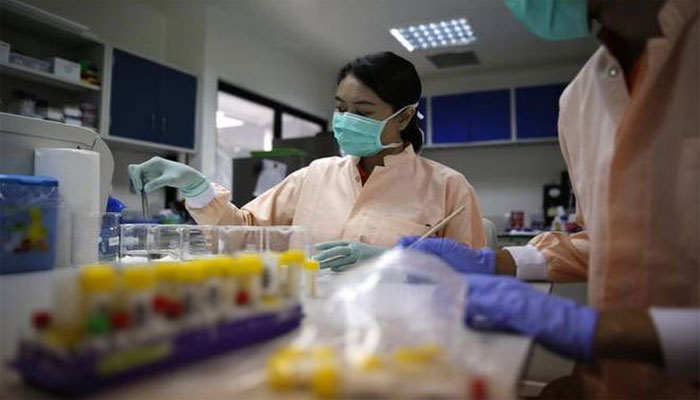Wave of drug-resistant typhoid a new health challenge for Pakistan
After a widespread typhoid outbreak all across Pakistan, scientists have held a highly drug-resistant super-bug to be the cause.
According to a report by New York Times, the National Institute of Health in Islamabad has confirmed the first known plague of the expansively drug-resistant typhoid has hit Pakistan, attacking at least 850 people in 14 districts since 2016.
The typhoid strain that began in the November of 2016 from Hyderabad has since spread and is expected to disperse at a global scale as well.
It has been estimated that the diffusion of this superbug that is resistant to five types of antibiotics, might replace weaker strains where they are widespread.
According to experts, azithromycin is the only oral antibiotic remaining that has the capability to withstand the superbug. It has also been revealed that one genetic mutation could turn typhoid into an inoperable disease in specific areas.
The researchers have stressed on this epidemic to be treated as a shrill of alarm on an international scale to expansively encourage prevention exercises, with a significant elevation in vaccination campaigns and modern sanitation systems, or the bacterium would gravely lift up the mortality levels.
Dr. Rumina Hasan, a pathology professor at the Agha Khan University has stated, “This isn’t just about typhoid, antibiotic resistance is a threat to all of modern medicine — and the scary part is, we’re out of options.”
Caused by the Salmonella Typhi bacteria, the typhoid fever is an immensely infectious disease transmitted by polluted food or water. Symptoms of the disease include high fevers, headaches and vomiting. Statistics from the World Health Organization (WHO) suggest that 21 million people get infected with the pathogen annually and around 161,000 die from the virus.
The National Institute of Health in Islamabad has thus far reported four deaths from this endemic and at least one travel-related death has been taken place in the United Kingdom.
An infectious disease geneticist at the Wellcome Sanger Institute in England, Dr. Elizabeth Klemm reveals, “There are multiple worst-case scenarios. One is that this strain spreads to other regions through migration. But the other is that it pops up elsewhere on its own — plasmids with drug resistance are everywhere.”
As a measure of prevention, a campaign has been launched by the public health officials to provide vaccinations to 250,000 children in Hyderabad by the use of a new typhoid conjugate vaccine, Typbar-TVC, prequalified by the W.H.O, freshly.
-
Jelly Roll explains living with 'severe depression'
-
Charli XCX reveals ‘confusing’ toll ‘Brat’ popularity took on her
-
Margot Robbie opens up about imposter syndrome ‘crisis’
-
Hailey Bieber reveals how having ovarian cysts is 'never fun'
-
Sir Elton John details struggle with loss of vision: 'I can't see'
-
What we know about Chris Cornell's final hours
-
5 famous celebrities who beat cancer
-
Oprah Winfrey talks about weight-loss 'tool to manage' health












